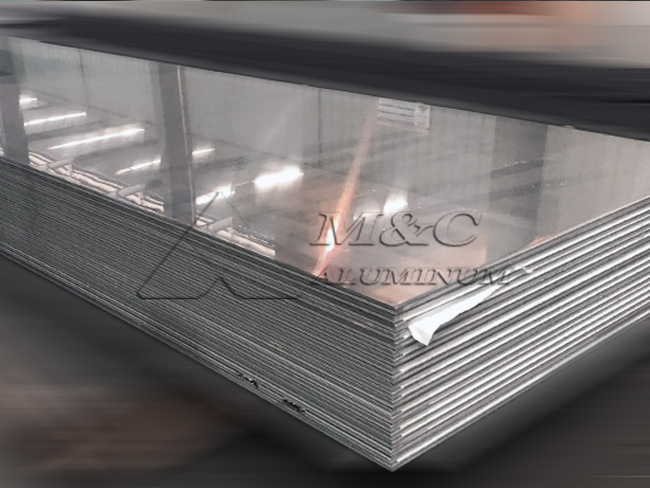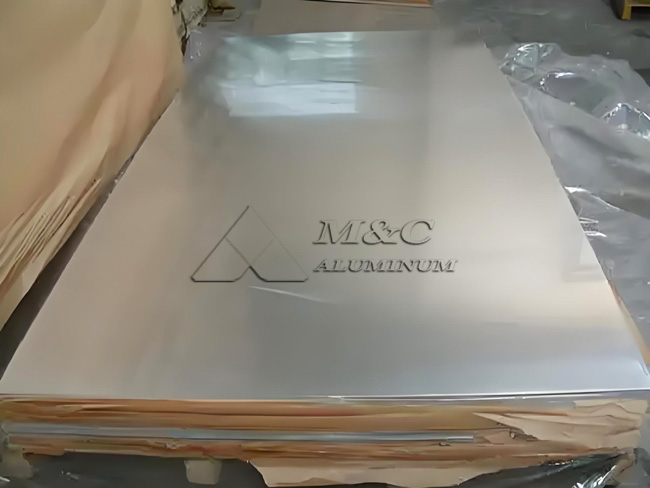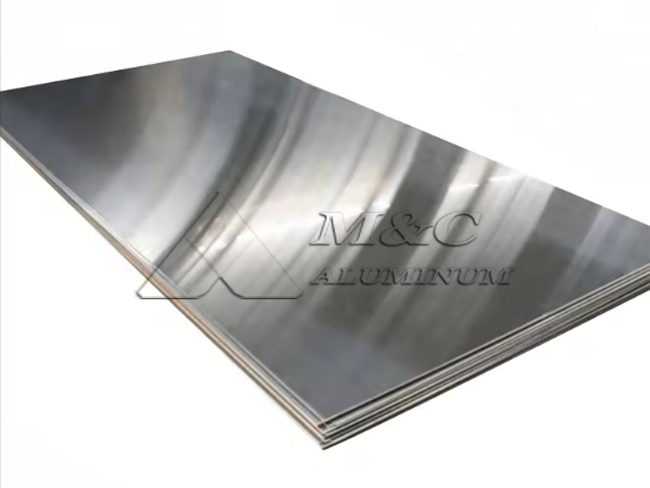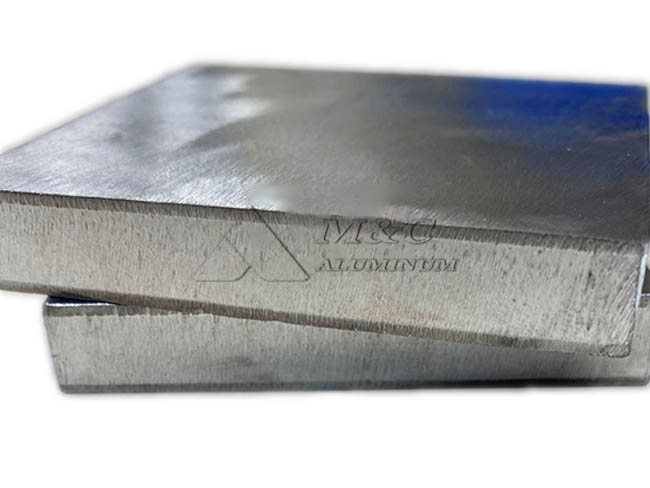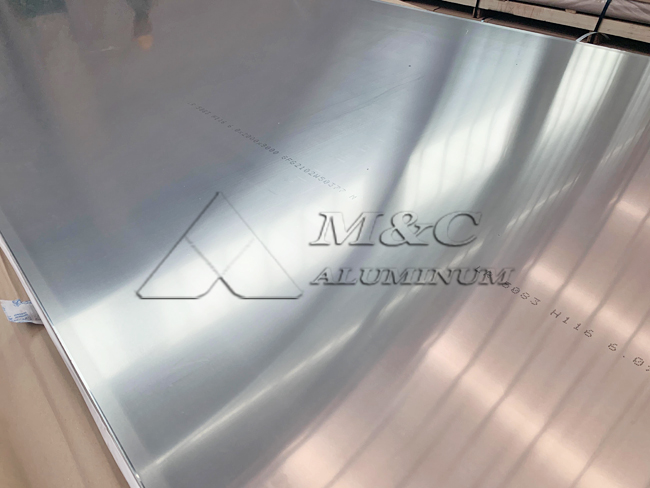In the maritime and shipbuilding industries, metal materials must withstand two critical challenges-seawater corrosion and structural strength. Traditional carbon steel, while strong, rusts quickly in seawater and is not cost- or weight-efficient. In contrast, marine-grade aluminum offers exceptional corrosion resistance while remaining lightweight and strong, making it the ideal choice for yachts, fishing vessels, warships, and even offshore platform structures.
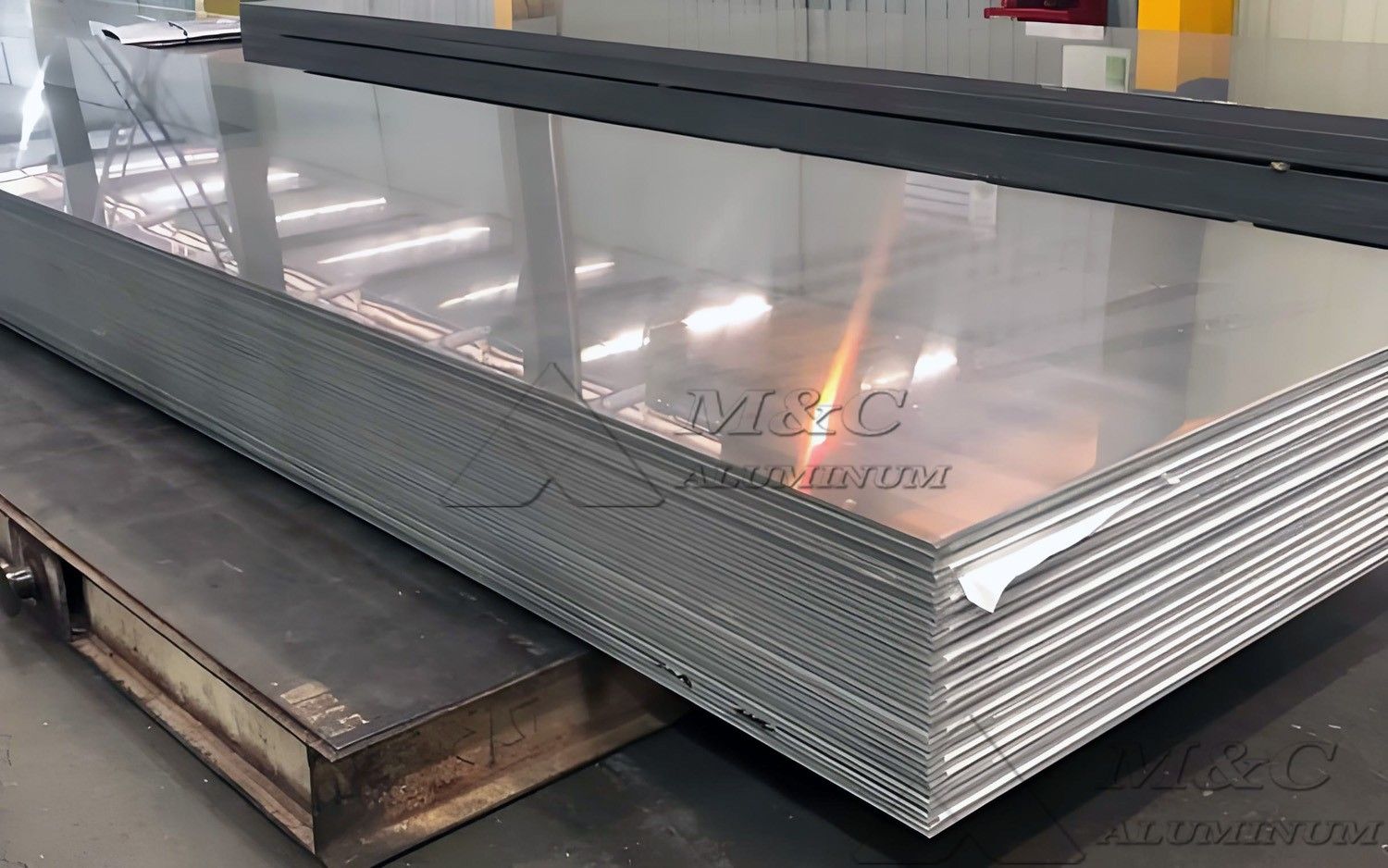
What Is Marine-Grade Aluminum?
In marine applications, aluminum is constantly exposed to water and moisture, requiring additional protection. When aluminum is alloyed with magnesium and other metals, its corrosion resistance is significantly enhanced, enabling it to withstand prolonged contact with water and saltwater. These specially processed alloys are known as marine-grade aluminum.
Common marine-grade aluminum alloy series include
5xxx series (Al-Mg): e.g., 5052, 5083, 5086, 5754, 5456 - Excellent corrosion resistance, outstanding weldability, widely used for hull plates and decks.
6xxx series (Al-Mg-Si): e.g., 6061, 6082 - Higher strength, suitable for masts, frames, gangways, and other structural components.
MC Aluminum produces a wide range of marine aluminum products, including plates, sheets, coils, tubes, bars, and extrusions, in various tempers.
Advantages of Using Aluminum in Shipbuilding
1. Exceptional Corrosion Resistance
Seawater contains chloride ions, which quickly damage the oxide layer of ordinary metals. Marine-grade aluminum contains magnesium (Mg), manganese (Mn), silicon (Si), and other elements, forming a dense oxide film that effectively blocks corrosive media.
2. Lightweight with High Strength
Aluminum has only one-third the density of steel, significantly reducing vessel weight, increasing speed, and lowering fuel consumption.
3. Excellent Processing and Welding Performance
Marine-grade aluminum is easy to cut, bend, stamp, and weld, with minimal post-weld strength loss-enabling shipyards to build and repair vessels efficiently.
4. Low Maintenance Costs
Unlike steel structures, aluminum hulls do not require frequent rust removal and repainting, lowering maintenance costs over their service life.
Marine Aluminum Product Information
| Product | Aluminum Plate | Aluminum Profile |
| Type | plate | Square tube, rectangular tube, round tube, channel, I-beam, custom shapes |
| Alloys | 5052, 5083, 5086, 5754, 5456, 6061, 6063, 6082, etc. | |
| Tempers | O, H111, H116, H321, T5, T6, etc. | |
| Thickness | 3-5mm | 1.5-15mm |
| Width | 100-2500mm | - |
| Length | 2000-16000mm | Up to 13 m |
| Surface | Mill finish, brushed, anodized, marine coating | Anodized, powder-coated, marine coating |
| Certifications | ABS, LR, DNV, CCS, etc. | |
| MOQ | 1-3 tons | |
Mechanical Properties
| Alloy | Tensile Strength (MPa) | Yield Strength (MPa) |
| 5083 | 305-385 | 215-295 |
| 5086 | ||
| 5456 | ||
| 5052 | 170-220 | 60-100 |
| 6061 | 214 | 214 |
| 6063 | 186-290 | 145-269 |
| 6082 | 310 | 260 |
Applications of Marine-Grade Aluminum
Shipbuilding
Yachts, sailboats, fishing vessels, patrol boats, passenger ferries
Hulls, keels, decks, bulkheads
Marine Engineering
Offshore wind power platforms, offshore drilling platform structures
Floating bridges, pontoons, dock structures
Auxiliary Equipment
Gangways, railings, hatches, skylight frames
Housings for seawater desalination equipment
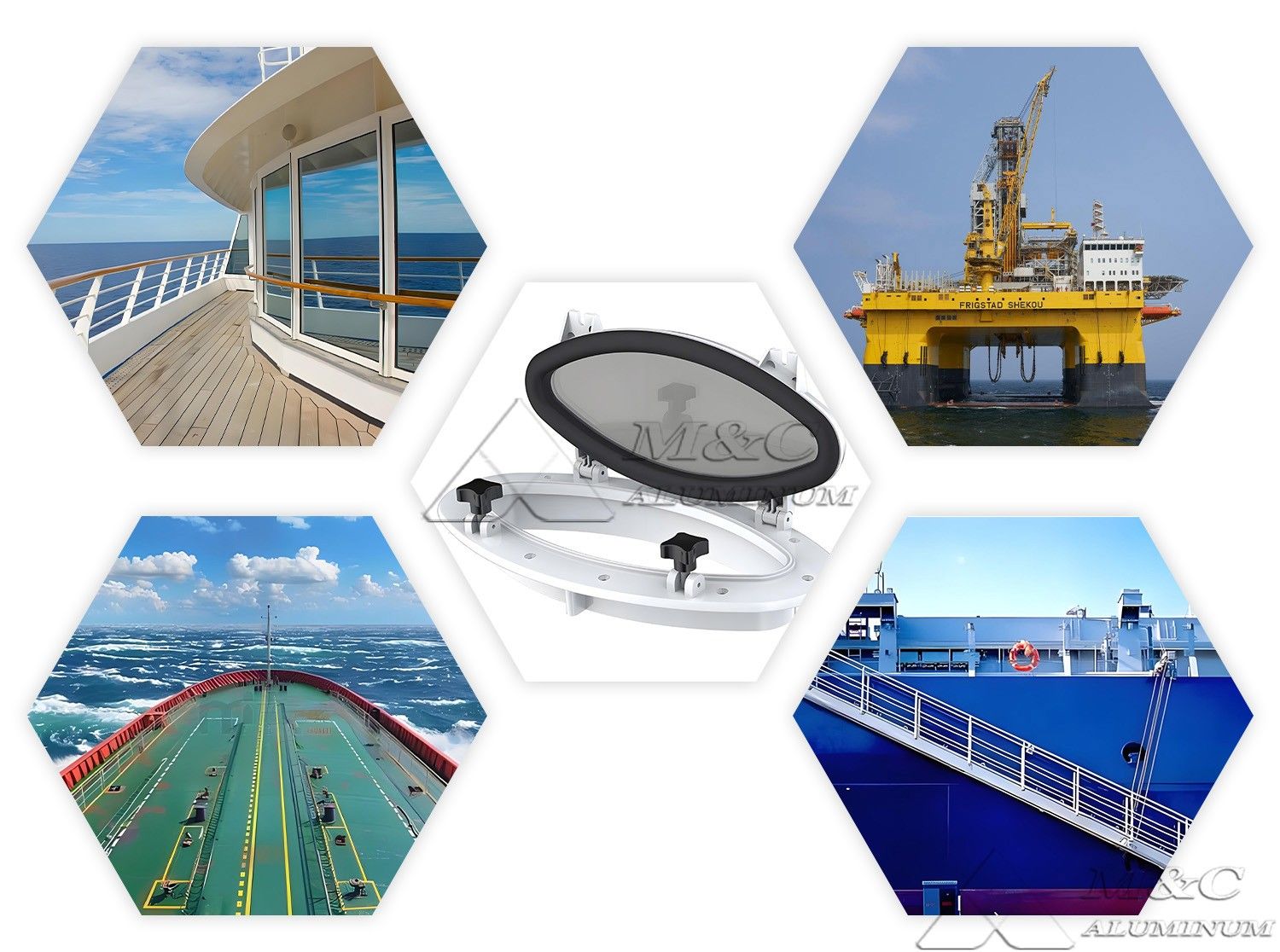
Key Filler Material Selection for Welding
For 5xxx series alloys (5083, 5086, 5052):
ER5356 - Magnesium-based filler (5% Mg), excellent strength and corrosion resistance, ideal for 5052 and 5083.
For high-strength 5083, ER5556 or ER5183 is recommended for optimal strength match.
For 6xxx series alloys (6061, 6063):
ER4043 - Silicon-based filler, excellent crack resistance and flow, ideal for non-structural parts or aesthetic welds.
ER5356 - Better strength and corrosion resistance for load-bearing marine structures.
ER4047 - Reduces hot cracking due to faster solidification.
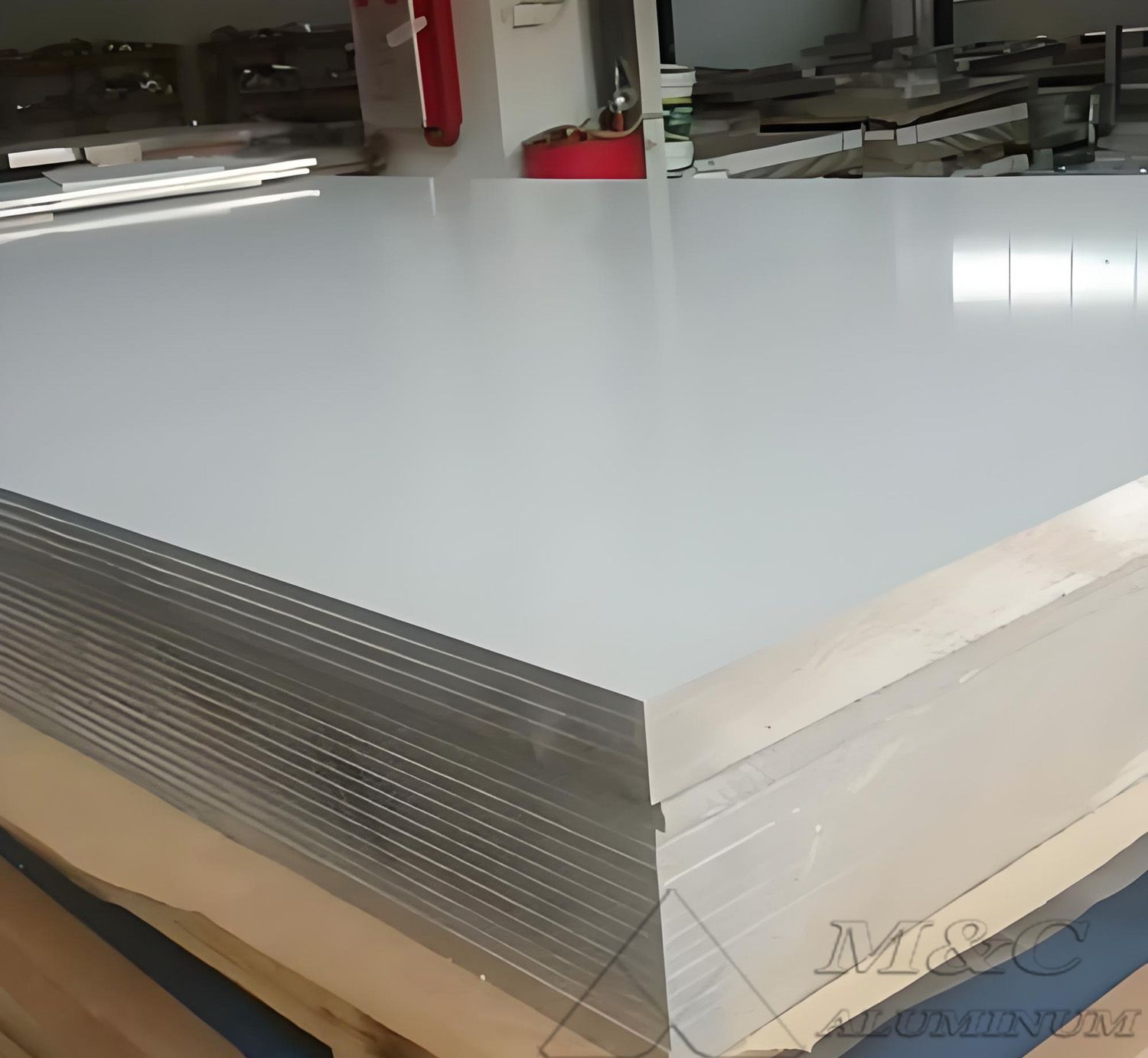
Selection and Processing Tips for Marine-Grade Aluminum
Match to Environment: For long-term service in tropical seas, choose high-Mg alloys like 5083 or 5086. In cold seas, consider 5456.
Welding Process: Use TIG or MIG with inert gas shielding for corrosion-resistant welds.
Surface Treatment: Natural oxide films offer protection, but anodizing or marine coatings extend service life.
Avoid Galvanic Corrosion: Isolate contact with steel or copper alloys using insulating pads or coatings.
Original Source: https://www.marinealum.com/a/a-guide-to-marine-grade-aluminum.html
Tag: Marine-grade aluminum marine-grade aluminum alloys marine aluminum 5-series marine aluminum alloys 6-series marine aluminum alloys marine aluminum-magnesium alloys marine-grade aluminum profiles marine-grade aluminum plates shipbuilding aluminum p

